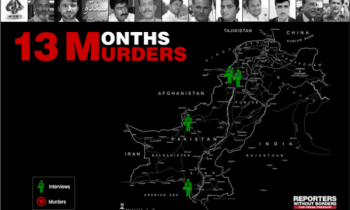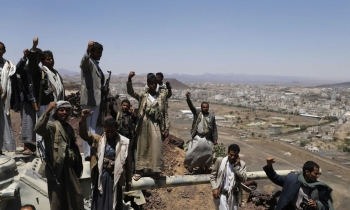Indonesian soldiers shot dead five Australia-based journalists even as they were surrendering at the town of Balibo in East Timor in 1975.

An East Timorese eyewitness told a Sydney inquest Monday he saw four of the Balibo Five journalists raise their hands in surrender before they were gunned down by Indonesian troops, press reports have said. An inquest into the death of one of the five Australia-based journalists, Brian Peters, began in Sydney on Monday, more than 30 years after his death on the then Indonesian-occupied island.
The eyewitness, who trained with the Indonesian military, known by the code name “Glebe 2”, told the coroner’s court that when invading Indonesian troops entered Balibo’s town square he saw four white people raise their arms in the air.
“I observed some people were lifting their arms up,” Glebe 2 said through an interpreter, and demonstrated a surrender pose. The witness said he then saw soldiers start firing at the journalists. “They shot at them,” he said. “I saw them shoot. A lot of them were firing. They fired towards the white people.”
Five television journalists — Greg Shackleton, Gary Cunningham, Tony Stewart, Malcolm Rennie and Peters — were killed while covering Indonesia’s invasion of East Timor. They came to be known as the Balibo Five. Official reports say the men were killed in crossfire between Indonesian troops and East Timorese militia, but their families insist they were murdered in cold blood. There have been many abortive attempts by the Australian government to inquire into the journalists’ deaths. Attempts in 1975, 1976, 1996 and 1999 - including through the Australian embassy in Jakarta - all failed.
“In this macabre falsification of evidence to try to suggest that the journalists had been combatants, the bodies were then photographed and filmed by two Indonesian reporters,” Mark Tedeschi, the counsel assisting the inquest, told reporters. The bodies were then burnt before being sent to the Australian embassy in Jakarta to be buried.
Tedeschi said if the five journalists were deliberately targeted for execution, a possible motive was that the Indonesian government did not want footage of its actions in the invasion of East Timor to get out because it could compromise the Australian government’s support for the invasion. “The five journalists had seen clear evidence of the involvement of Indonesian forces in the attack on Balibo. The elimination of this evidence could have been seen as essential if the news was not to get out to the world at this critical stage,” he said.
The inquest, which is expected to take three weeks, will examine among other things whether the Australian authorities, including former Labour Prime Minister Gough Whitlam, now aged 92, were aware of an order to eliminate the journalists after Indonesian army communications were intercepted. A finding of deliberate targeting and execution would bring calls for war crimes cases against the Indonesians involved, some of whom later rose to senior positions — notably the officer in charge of the Balibo attack, Yunus Yosfiah, who became Indonesia's minister of information in 1998.
Among the 66 listed witnesses are a dozen Timorese who were auxiliaries with the Indonesian special forces team that attacked Balibo on October 16, 1975, at the start of the invasion.
Paris-based press freedom group Reporters sans Frontières (RSF) has hailed the reopening of the investigation into the death of Peters. “This new investigation 30 years after the events offers an historic opportunity to shed light on the death of five reporters who were key witnesses of the Indonesian army’s invasion of East Timor,” RSF said. “The occupation and subsequent liberation of this former Portuguese colony were marked by serious human rights violations, including the deaths of journalists.”
Shirley Shackleton, the widow of Shackleton, told RSF: "All that we learn about Brian will help us to shed light on the other four (. . .). The families have been calling for a special inquest into this case for the past four years. The arrival of a new coroner helped to get things going."









